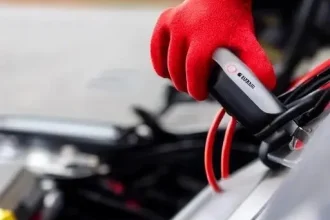The hum of a new engine, the gleam of fresh paint – leasing a car often embodies the thrill of driving without the long-term commitment of ownership․ It’s a remarkably appealing proposition for millions, offering access to the latest models and cutting-edge technology․ Yet, beneath this veneer of automotive bliss lurks a common, often whispered fear: the dreaded engine failure on a leased car․ This isn’t just a minor inconvenience; it can feel like a financial abyss opening beneath your perfectly planned budget․ The mere thought conjures images of unexpected repair bills, protracted negotiations, and the unsettling realization that you’re paying for a car you can’t even drive․
However, this pervasive anxiety, while understandable, no longer needs to define the leasing experience․ We are standing at the precipice of a new era where proactive strategies, sophisticated agreements, and an informed approach empower lessees like never before․ The narrative is shifting from one of helpless victimhood to one of empowered navigation․ By integrating insights from industry experts and understanding the intricate layers of modern leasing, individuals can not only mitigate the risks but also transform a potentially catastrophic event into a manageable, albeit unwelcome, detour․ This forward-looking perspective, coupled with robust preparation, is proving incredibly effective in safeguarding peace of mind and financial security for drivers across the globe․
| Category | Information | Reference Link |
|---|---|---|
| Key Lease Agreement Clauses | Understand “normal wear and tear,” maintenance responsibilities, early termination penalties, and specific clauses regarding major mechanical failures․ | FTC Auto Leasing Tips |
| Essential Protections | Manufacturer’s warranty (often covers engine failure), extended service contracts, and Gap Insurance (crucial for protecting against lease balance if totaled)․ | |
| Steps During Engine Failure | Immediately contact your leasing company and dealership․ Document everything: dates, times, names, and conversations․ Arrange for towing and diagnostics through approved channels․ | FTC: Auto Warranties & Service Contracts |
| Preventative Maintenance Tips | Adhere strictly to the manufacturer’s recommended maintenance schedule․ Regular oil changes, fluid checks, and timely servicing can prevent many issues․ | Car and Driver: Maintenance Schedule |
Unpacking the Lease Agreement: Your First Line of Defense
The journey to mastering potential engine failure begins not on the road, but in the meticulous reading of your lease agreement․ Often perceived as dense, legalistic documents, these contracts are, in fact, the bedrock of your rights and responsibilities․ Many standard leases include a manufacturer’s warranty that typically covers major components, including the engine, for a significant portion, if not the entirety, of the lease term․ Understanding these warranty provisions is paramount․ “Lessees often gloss over the fine print, assuming all major issues are covered,” explains Sarah Jenkins, a consumer automotive advocate․ “However, knowing precisely what your warranty entails – its duration, mileage limits, and exclusions – empowers you to act decisively if a problem arises․” Furthermore, the agreement will detail who is responsible for routine maintenance versus catastrophic repairs․ Distinguishing between “normal wear and tear” and a genuine mechanical defect, which is usually covered, can save lessees considerable stress and expense․
The Safety Nets: Warranties, Service Contracts, and Gap Insurance
Beyond the standard manufacturer’s warranty, several robust safety nets exist, significantly reducing the financial exposure associated with engine failure․ Extended service contracts, often available through the dealership or third-party providers, can offer an additional layer of protection, particularly as the vehicle approaches the end of its factory warranty period․ These contracts, while an added cost, can provide invaluable peace of mind, covering parts and labor for unforeseen mechanical breakdowns․ More critically, for any leased vehicle, Gap Insurance is an absolute non-negotiable․ If your leased car suffers an engine failure so severe it’s deemed a total loss – a relatively rare but devastating scenario – Gap Insurance covers the difference between what your primary auto insurance pays out and the remaining balance on your lease; Without it, lessees could find themselves owing thousands for a car that no longer exists․
Proactive Prevention: The Unsung Hero of Lease Longevity
While the thought of engine failure can be daunting, a considerable percentage of such incidents are, regrettably, preventable․ Adhering strictly to the manufacturer’s recommended maintenance schedule is not merely a suggestion; it is a critical investment in your vehicle’s longevity and your financial well-being․ Regular oil changes, fluid checks, tire rotations, and timely inspections by certified technicians dramatically reduce the likelihood of major mechanical issues․ “Think of preventative maintenance as your car’s annual physical,” suggests Dr․ Alex Chen, an automotive engineering professor․ “Ignoring these routine check-ups is akin to inviting serious health problems․ Modern engines, while incredibly sophisticated, still rely on consistent care to perform optimally․” Many leasing agreements even mandate adherence to these schedules, meaning neglecting them could invalidate warranty coverage, leaving you solely responsible for costly repairs․
Navigating the Aftermath: A Clear Path Forward
Should the unexpected happen, and your leased car’s engine falters, a clear, calm approach is essential․ Your first call should be to the leasing company to report the issue and understand their specific protocols․ Simultaneously, contact the dealership where you leased the vehicle or another authorized service center․ They will be best positioned to diagnose the problem and determine if it falls under warranty․ Document every interaction: the names of individuals you speak with, the dates, times, and a summary of the conversation․ Keep all repair estimates and invoices․ Modern telematics and diagnostic tools, increasingly integrated into leased vehicles, can also provide invaluable data, helping technicians pinpoint issues swiftly and accurately․ This digital trail can be incredibly helpful in streamlining the repair process and ensuring all parties are aligned․
The Horizon of Leasing: Smarter, More Secure Driving
Looking ahead, the landscape of vehicle leasing is evolving rapidly, promising an even more secure and transparent experience for lessees․ Advances in predictive analytics and AI-driven diagnostics are transforming vehicle maintenance, allowing for issues to be identified and addressed long before they escalate into catastrophic failures․ Leasing companies are also exploring more flexible agreements that better account for unexpected mechanical issues, offering clearer pathways for resolution․ The future envisions a symbiotic relationship between advanced vehicle technology, robust consumer protection, and informed leasing practices, effectively transforming the challenge of potential engine failure into a manageable aspect of the modern driving experience․ By embracing knowledge, utilizing available protections, and prioritizing diligent maintenance, lessees can confidently navigate the road ahead, enjoying the unparalleled freedom and flexibility that a leased vehicle offers․ The era of fear is giving way to an era of empowered driving․






